Search
Search Results

Article
Spartan Women
Spartan women had more rights and enjoyed greater autonomy than women in any other Greek city-state of the Classical Period (5th-4th centuries BCE). Women could inherit property, own land, make business transactions, and were better educated...

Definition
Sparta
Sparta was one of the most important city-states in ancient Greece and was famous for its military prowess. The professional and well-trained Spartan hoplites with their distinctive red cloaks and long hair were probably the best and most...

Article
Sports, Games & Entertainment in the Elizabethan Era
Leisure activities in the Elizabethan era (1558-1603 CE) became more varied than in any previous period of English history and more professional with what might be called the first genuine entertainment industry providing the public with...
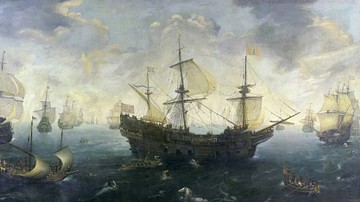
Definition
Spanish Armada
The 1588 Spanish Armada was a fleet of 132 ships assembled by King Philip II of Spain (r. 1556-1598) to invade England, his 'Enterprise of England'. The Royal Navy of Elizabeth I of England (r. 1558-1603) met the Armada in the English Channel...

Definition
Spanish Galleon
The Spanish galleon (Spanish: galeón, nao, or navío) was a particularly large type of galleon used for both carrying cargo and as a warship armed with up to 60 cannons. Used from the mid-16th century until the early 19th century, Spanish...
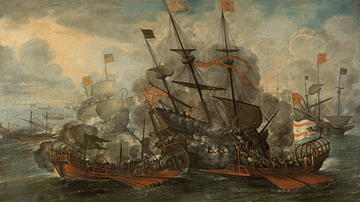
Definition
Spanish Treasure Fleets
From the 16th to 18th centuries, two treasure fleets sailed each year, one to Mexico and the other to Central America, then part of the Spanish Empire. There they collected precious eastern goods and the riches of the Americas, including...
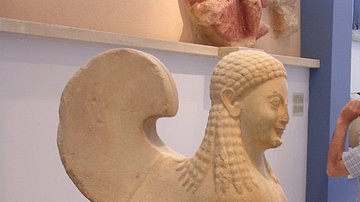
Definition
Sphinx
A sphinx is a mythical creature with the body of a lion, most often with a human head and sometimes with wings. The creature was an Egyptian invention and had a male head - human or animal; however, in Greek mythology, the creature had the...
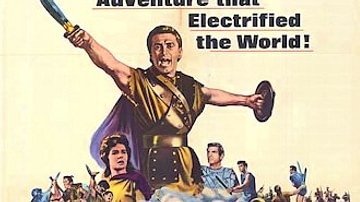
Definition
Spartacus
Throughout history - both ancient and modern - those bound in chains have fought to free themselves from their oppressors. As with most civilizations - Assyrian, Greek and even American - slaves in ancient Rome were not considered citizens...
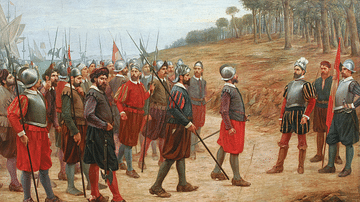
Definition
Spanish Requirement
The Spanish Requirement or Requerimiento was a document intended to be read out to and agreed upon by indigenous peoples during the Spanish conquest of the Americas. Created in 1513, the document outlined the history of Christianity, the...

Definition
Spanish Main
The Spanish Main refers, in its widest sense, to the Spanish Empire in the Americas from Florida in the north to the northern coast of Brazil in the south, including the Caribbean. The term was initially more limited and referred only to...